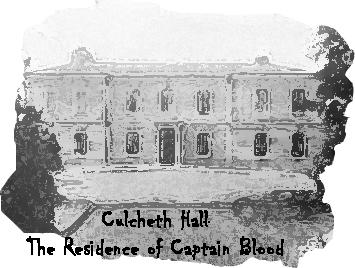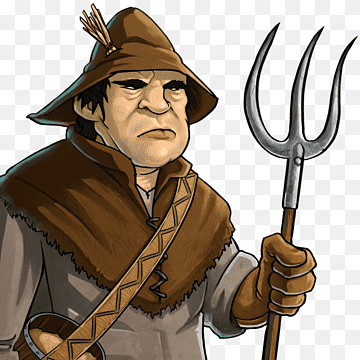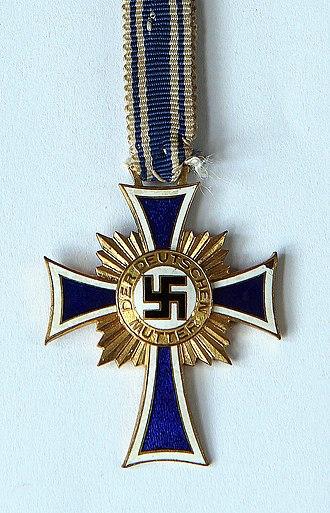The Industrial Revolution first occurred in Britain in the eighteenth century. By 1900, Britain was still perhaps one of the richest and most powerful nations in the world; at that time, they were already being challenged by the rising powers USA and Germany.
It was thus no coincidence that it was the German Carl Benz, who in 1885, built the world’s first motor car. Nor was it a coincidence that it was the German Rudolf Christian Karl Diesel who designed the first diesel engine. But this is not an economic history, so I will not go into further details.
However, the Americans also had their ‘inventors’ during this period, such as Thomas Edison, Alexander Graham Bell, and others. Of course, my mother would quickly point out that Alexander Graham Bell was actually a Scot, as he was born in Scotland.
Scots – The Undefeated!
My mother would often say that the Scots were the fiercest race in the world; they were so feared by the Romans during their 1000-year Reich that they built Hadrian’s Wall to keep out the Scottish ‘hordes’. Thus, she claimed the Scots were the only ‘undefeated’ nation in the history of the world; she seemed to have forgotten Culloden, where our ‘ancestor’, the Chief of the MacGillivray clan, led the Scots to defeat against the hated English. In other words, it was these ideas that had been ingrained in me from the time I first suckled at my mother’s breast.
Going back, it is rather annoying for a Scot to read about the ‘English’ Industrial Revolution, because most of the inventors were really Scottish. One might even go as far to say that the Scots ‘invented’ the modern world. It was the Scot James Watt (among others) who was credited with inventing the steam engine, the basis for the first industrialisation. There are also many other Scottish inventors later; an example was John Logie Baird, an electrical engineer and innovator, who demonstrated the world’s first live working television system.
I will not apologise to the reader here for this lengthy digression. I excuse it by saying that it actually contributes to a character description of my mother. She was a Scottish ‘nationalist’. Ironically, if she were alive today, she would probably disagree with the Scottish nationalists saying they are ‘lefties’; however, she would not have used such a politically-charged word, as she didn’t talk about ‘politics’ then.
The transition from austerity to ‘We’ve never had it so good’
By the 1950s, the British Empire was very much a broken empire; this was despite emerging ‘victorious’ from the war against the rising power Germany. The new innovative post-war consumerism first occurred in the USA, the nation that had replaced Britain as the no. 1 global power. This new and innovative American consumerism can be seen in the old movies of the 1950s, where families have large freezers and electric washing machines already in the early 1950s. However, in the early-1950s, the ‘household appliance revolution’ had not yet occurred in Britain; Britain was still in a period of ‘austerity’, suffering from the devastation left behind by World War II.
Without these handy appliances, housework was still a job mainly done manually and it was hard and time-consuming. Thus, the house was not only a home, but also your mother’s workplace; so it is understandable that mothers didn’t want kids getting in the way, or undoing the work they had done.
Women in the World
As an additional note, it may be remarked here that the majority of women in the world today still find themselves in the middle of the last century in terms of development; ‘doing the laundry’ is still very much a manual job for most mothers and daughters around the world in underdeveloped countries in the East and South; this is because some families can’t afford household appliances, electricity bills, or proper plumbing.
During my childhood, my mother would often still be working in the evenings, ironing clothes in the living room, and watching TV; on the other hand, everyone else had ‘free-time’, and could relax. T
his subservient role of women in the 1950s is symbolised in John Osborne’s play, Look Back in Anger (1956). There, angry Jimmy knocks over the ironing board, and his wife Alison burns her arm on the hot iron. Implicitly, this seems to say that he despises the fact that she has become a ‘housewife’, despite the fact that she is ironing his shirt. Perhaps this can be related to John Lennon and Yoko Ono’s song, “Woman is the Nigger of the World” – especially the line, “Then we complain that she’s too unworldly to be our friend.”157. You can read that story again in this post, Childhood Memories in Hob Hey Lane.
The Powerful Rhoda
As for our household, washing and ironing clothes for five boys and a husband were surely hard and time-consuming tasks. We even had a separate washroom for a manual clothes wringer. Apart from doing the laundry, my mother cleaned the house, sewed and repaired clothes, made jam, cakes, and two meals a day for seven people. She also did the shopping and dressed five boys every day among many other tasks.
The ‘dining table’ became symbolic of our mother’s ‘power’. Meals and the dining table were a ritual. We had to sit upright and not have our ‘elbows on the table’. I can’t remember all the details. Unlike school dinners, we didn’t have to say the Lord’s Prayer. But absurdly, we had to say ‘Excuse Me’, before we could leave the table. Of course, we had to eat everything that had been put on our plate.
Chicken Politics
Today (2022), you can buy a roast chicken for a few dollars. So eating half a chicken today in the richer countries is not anything unusual as they are so cheap. But when I was a child, chickens and hens were quite expensive. We would be apportioned a part of the chicken/hen in relation to where you were placed in the family hierarchy.
Thus, the ‘upper’ members of the family would receive a ‘leg’ and the ‘lower’ members a ‘wing’. But my mother would assure us that a wing was actually ‘quite good’. ‘Breast’ meat was also considered quite good. Also preference would be given to someone higher up in the family hierarchy to snap/crack the chicken wishbone. This was usually between my eldest brother Sandy and my mother. Of course, all this is highly ironic, as my son Alan could easily eat a whole chicken, or at least half a chicken, whereas we had to divide a chicken/hen between seven of us!
Powerful Nations in the World of the Harknesses
But getting back to the point made above regarding household tasks. My mother would enlist our help to do these tasks. It suited well having four boys. We were five sons, but this was either before my younger brother Gavin was born, or when he was just a baby. Each boy would be given a task: ‘set the table’, ‘clear the table’, ‘wash the dishes’ and ‘dry the dishes’. Drying the dishes seemed to be the worst task, as you were the last one to finish though it wasn’t the most difficult task.
Like most kids, we resented doing these chores. My mother was like an army sergeant and just commanded us to do one of the four tasks; there was no question of debate or discussion. You often felt you were in the army! If you questioned any command or order, your mother or father would say, “Don’t answer back!”
But I am perhaps underestimating my mother. She wasn’t just a ‘housewife’ as such. She was also the ‘bookkeeper’ in that she was mainly responsible for balancing the family budget, planning Christmas holidays, summer holidays, school fees, and so on. My father undoubtedly was a hard worker and provided the family income. He could repair the family car, cultivate the garden, renovate the house, and so on. But in reality, it was my mother who was the ‘boss’.
The Babies in the Family
In fact, there were five boys; that is, my mother had five ‘babies’. But she also had a ‘sixth’ baby because my father was in one sense a ‘baby’. He was prone to be too glad in the ‘teat’ of intoxication, that is, whisky. So I think my mother had many ‘unspoken’ troubles keeping the family together. Not least, she was a ‘team’ leader who wouldn’t ‘rat out’ on the symbolic ‘head’ of the family, my father.
Later, we would witness my father’s ‘drunken’ behaviour – such as at the wedding of my eldest brother. But on the whole, I think my mother managed to ‘protect’ us from my father. Of course, I was not aware of this when I was a child – this is something that has become more clear in retrospect. So, despite all the criticisms I may have about my mother – the fact is – without her, we wouldn’t have had a ‘life’.
157 See also: Harkness, Ian . Master’s Thesis: Look Back on Anger: A Study of the Drama and Fiction of the ”Angry Young Men”, and the ”New Wave” Film Adaptations of these Texts. University of Oslo, Norway. 1995.



